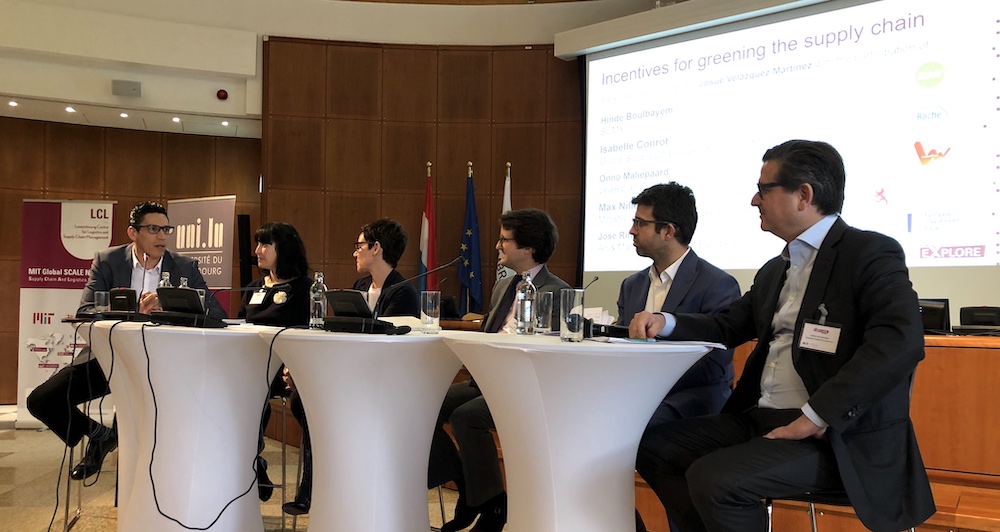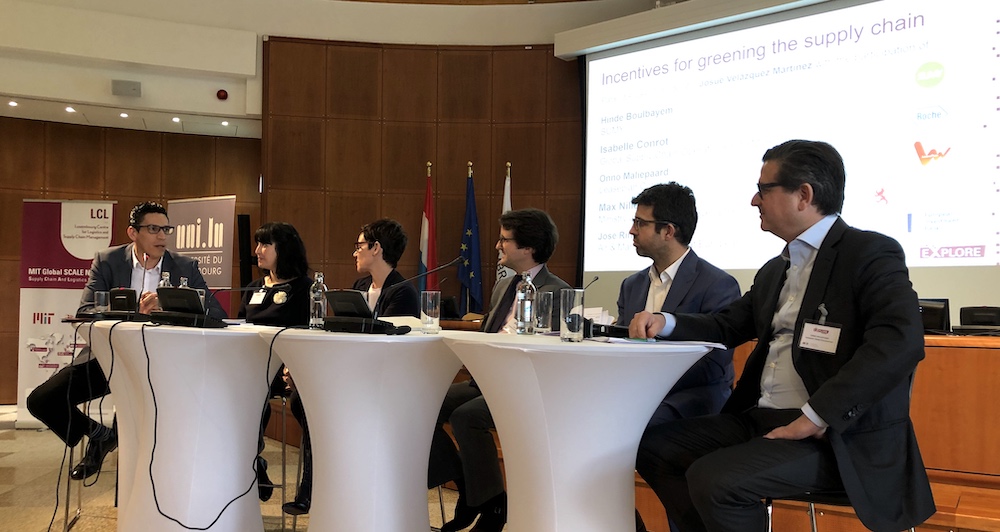
“Navigating the green supply chain”
The conference, organized by the Luxembourg Center for Logistics and Supply Chain Management (LCL) of the University of Luxembourg, highlighted some issues which are or will become of high strategic importance also for Steel Supply Chains.
EU Commission plans emission standards for Heavy Duty Vehicles (HDV)
It may be remembered, that EU Commission directives on battery certification and on fuel efficiency of tires are already steps to reduce emissions.
For HDV, EU Commission now plans to introduce a certification regulation to reduce CO2 outputs. This regulation would be introduced step-by-step.
The regulation would be based on output of gCO2 / tkm.
The output of CO2 would have to be reduced by -15 % up to 2025 and by -30% up to 2030, compared to the reference of the year 2019. The final target being to reduce CO2 output by -50 %.
The regulation would be accompanied by financial incentives in order to encourage Zero or Low Emission Vehicles fleets.
In case of infringements, heavy penalties would apply.
Sustainable Logistics
A speaker of MIT presented an optimization model regarding sustainable logistics.
Rising global urbanization and e-commerce are calling for sustainable logistics.
The optimization models are based on geospatial analysis and machine learning algorithms.
They are not only based on distance, but take into account topology, elevation, load weight and truck model.
A case study demonstrated the efficiency of such models.
MANAGING SUPPLY CHAIN RESILIENCE
A supply chain sub-sums many networks. Supply networks are endangered by various types of risks. Modelling these complex networks allows to investigate their structure and potentially identify risks.
In fact, the structure of supply networks impacts on supply network performance in risky circumstances, as can be seen today with the lot of uncertainties surrounding BREXIT.
To face supply chain disruptions, economic operators have to implement pro-active resilient supply networks to face such disruptions.
Usually supply network operators, know about risks and uncertainties of their immediate suppliers or customers, but mostly ignore the types of risks of their supplier’s suppliers or their customer’s customers.
The meeting was attended by about 100 participants: teachers, students, professionals.





